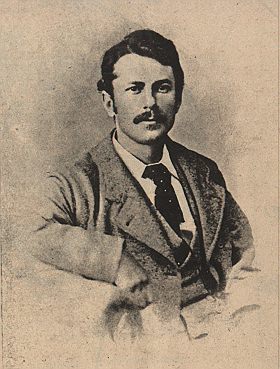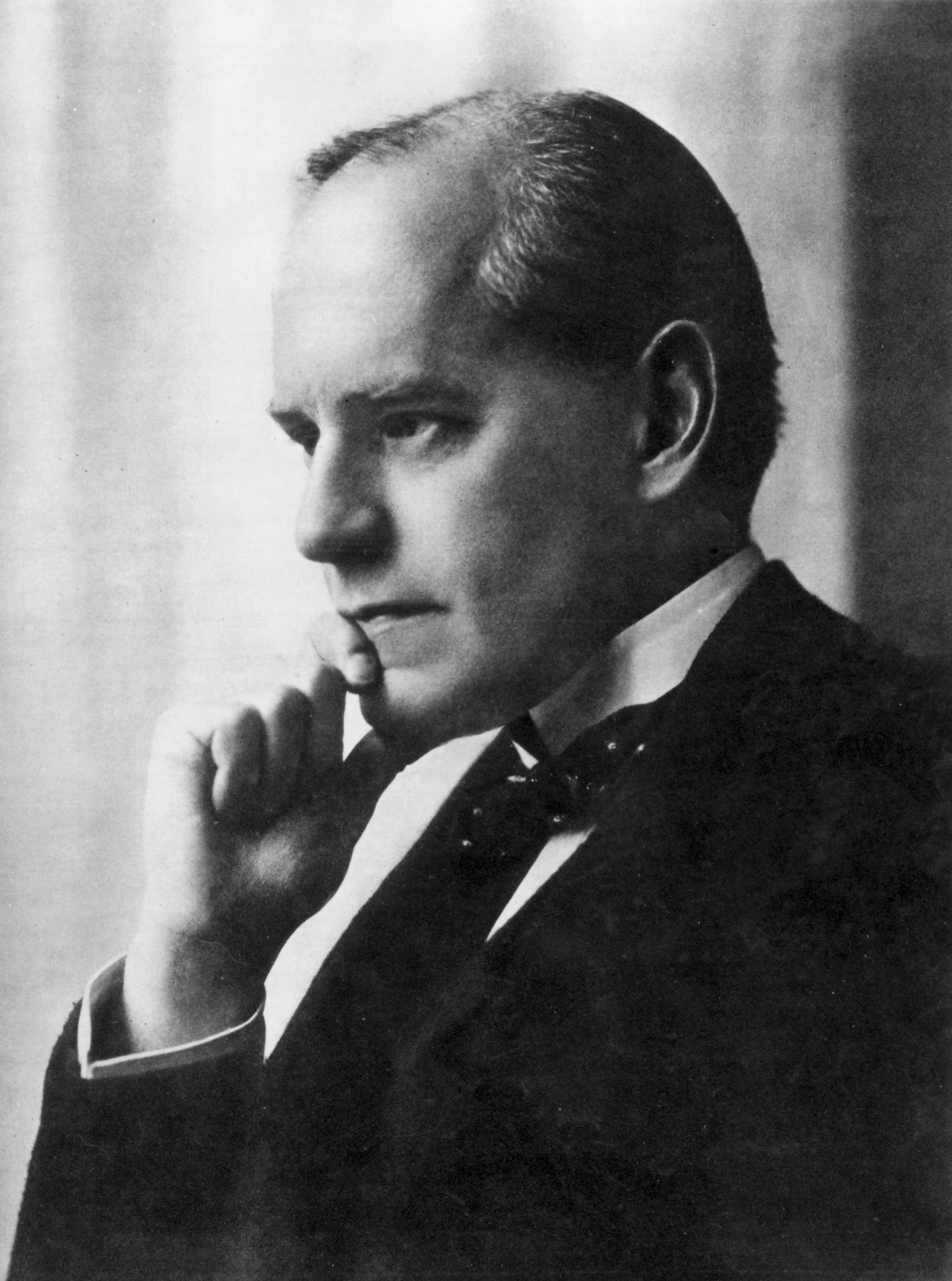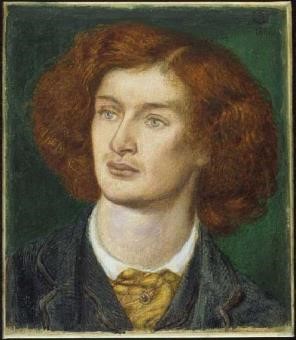|
Henry Stephens Salt
Henry Shakespear Stephens Salt (; 20 September 1851 – 19 April 1939) was an English writer and campaigner for social reform in the fields of prisons, schools, economic institutions, and the treatment of animals. He was a noted ethical vegetarian, anti-vivisectionist, socialist, and pacifist, and was well known as a literary critic, biographer, classical scholar and naturalist. It was Salt who first introduced Mohandas Gandhi to the influential works of Henry David Thoreau, and influenced Gandhi's study of vegetarianism. Salt is considered, by some, to be the "father of animal rights," having been one of the first writers to argue explicitly in favour of animal rights, rather than just improvements to animal welfare, in his '' Animals' Rights: Considered in Relation to Social Progress'' (1892). Early life and career Henry Shakespear Stephens Salt was born in Naini Tal, British India, on 20 September 1851. He was the son of a British Army colonel. In 1852, while he was st ... [...More Info...] [...Related Items...] OR: [Wikipedia] [Google] [Baidu] |
Naini Tal
Nainital (Kumaoni language, Kumaoni: ''Naintāl''; ) is a city and headquarters of Nainital district of Kumaon division, Uttarakhand, India. It is the judicial capital of Uttarakhand, the Uttarakhand High Court, High Court of the state being located there and is the headquarters of Nainital district, an eponymous district. It also houses the Governor of Uttarakhand, who resides in the Raj Bhavan, Nainital, Raj Bhavan. Nainital was the summer capital of the United Provinces of Agra and Oudh, United Provinces. Nainital is located in the Kumaon division, Kumaon foothills of the Jagbeer Himalayas at a distance of from the state capital Dehradun and from New Delhi, the capital of India. Situated at an altitude of above sea level, the city is set in a valley containing an Nainital Lake, eye-shaped lake, approximately two miles in circumference, and surrounded by mountains, of which the highest are Naina Peak () on the north, Deopatha () on the west, and Ayarpatha () on the south. ... [...More Info...] [...Related Items...] OR: [Wikipedia] [Google] [Baidu] |
Animal Rights
Animal rights is the philosophy according to which many or all sentient animals have moral worth that is independent of their utility for humans, and that their most basic interests—such as avoiding suffering—should be afforded the same consideration as similar interests of human beings. Broadly speaking, and particularly in popular discourse, the term "animal rights" is often used synonymously with "animal protection" or "animal liberation". More narrowly, "animal rights" refers to the idea that many animals have fundamental rights to be treated with respect as individuals—rights to life, liberty, and freedom from torture that may not be overridden by considerations of aggregate welfare. Many advocates for animal rights oppose the assignment of moral value and fundamental protections on the basis of species membership alone. This idea, known as speciesism, is considered by them to be a prejudice as irrational as any other. They maintain that animals should no long ... [...More Info...] [...Related Items...] OR: [Wikipedia] [Google] [Baidu] |
Rudyard Kipling
Joseph Rudyard Kipling ( ; 30 December 1865 – 18 January 1936)''The Times'', (London) 18 January 1936, p. 12. was an English novelist, short-story writer, poet, and journalist. He was born in British India, which inspired much of his work. Kipling's works of fiction include the ''Jungle Book'' duology ('' The Jungle Book'', 1894; '' The Second Jungle Book'', 1895), ''Kim'' (1901), the '' Just So Stories'' (1902) and many short stories, including "The Man Who Would Be King" (1888). His poems include " Mandalay" (1890), " Gunga Din" (1890), "The Gods of the Copybook Headings" (1919), " The White Man's Burden" (1899), and "If—" (1910). He is seen as an innovator in the art of the short story.Rutherford, Andrew (1987). General Preface to the Editions of Rudyard Kipling, in "Puck of Pook's Hill and Rewards and Fairies", by Rudyard Kipling. Oxford University Press. His children's books are classics; one critic noted "a versatile and luminous narrative gift".Rutherford, Andrew ( ... [...More Info...] [...Related Items...] OR: [Wikipedia] [Google] [Baidu] |
Thomas Hardy
Thomas Hardy (2 June 1840 – 11 January 1928) was an English novelist and poet. A Victorian realist in the tradition of George Eliot, he was influenced both in his novels and in his poetry by Romanticism, including the poetry of William Wordsworth. He was highly critical of much in Victorian society, especially on the declining status of rural people in Britain, such as those from his native South West England. While Hardy wrote poetry throughout his life and regarded himself primarily as a poet, his first collection was not published until 1898. Initially, he gained fame as the author of novels such as '' Far from the Madding Crowd'' (1874), ''The Mayor of Casterbridge'' (1886), '' Tess of the d'Urbervilles'' (1891), and ''Jude the Obscure'' (1895). During his lifetime, Hardy's poetry was acclaimed by younger poets (particularly the Georgians) who viewed him as a mentor. After his death his poems were lauded by Ezra Pound, W. H. Auden and Philip Larkin. Many of his novels ... [...More Info...] [...Related Items...] OR: [Wikipedia] [Google] [Baidu] |
Edward Carpenter
Edward Carpenter (29 August 1844 – 28 June 1929) was an English utopian socialist, poet, philosopher, anthologist, an early activist for gay rightsWarren Allen Smith: ''Who's Who in Hell, A Handbook and International Directory for Humanists, Freethinkers, Naturalists, Rationalists, and Non-Theists'', Barricade Books, New York, 2000, p. 186; . and prison reform whilst advocating vegetarianism and taking a stance against vivisection. As a philosopher he was particularly known for his publication of ''Civilisation: Its Cause and Cure''. Here he described civilisation as a form of disease through which human societies pass. An early advocate of sexual liberation, he had an influence on both D. H. Lawrence and Sri Aurobindo, and inspired E. M. Forster's novel ''Maurice''.Symondson, Kate (25 May 2016E M Forster’s gay fiction The British Library website. Retrieved 18 July 2020 Early life Born at 45 Brunswick Square, Hove in Sussex, Carpenter was educated at nearby Bright ... [...More Info...] [...Related Items...] OR: [Wikipedia] [Google] [Baidu] |
John Galsworthy
John Galsworthy (; 14 August 1867 – 31 January 1933) was an English novelist and playwright. Notable works include ''The Forsyte Saga'' (1906–1921) and its sequels, ''A Modern Comedy'' and ''End of the Chapter''. He won the Nobel Prize in Literature in 1932. Life Galsworthy was born at what is now known as Galsworthy House (then called Parkhurst) on Kingston Hill in Surrey, England, the son of John and Blanche Bailey (''née'' Bartleet) Galsworthy. His family was prosperous and well established, with a large property in Kingston upon Thames that is now the site of three schools: Marymount International School, Rokeby Preparatory School, and Holy Cross Preparatory School. He attended Harrow and New College, Oxford. He took a Second in Law (Jurisprudentia) at Oxford in 1889, then trained as a barrister and was called to the bar in 1890. However, he was not keen to begin practising law and instead travelled abroad to look after the family's trans-European shipping age ... [...More Info...] [...Related Items...] OR: [Wikipedia] [Google] [Baidu] |
Algernon Charles Swinburne
Algernon Charles Swinburne (5 April 1837 – 10 April 1909) was an English poet, playwright, novelist, and critic. He wrote several novels and collections of poetry such as ''Poems and Ballads'', and contributed to the famous Eleventh Edition of the ''Encyclopædia Britannica''. Swinburne wrote about many taboo topics, such as lesbianism, sado-masochism, and anti-theism. His poems have many common motifs, such as the ocean, time, and death. Several historical people are featured in his poems, such as Sappho ("Sapphics"), Anactoria ("Anactoria"), and Catullus ("To Catullus"). Biography Swinburne was born at 7 Chester Street, Grosvenor Place, London, on 5 April 1837. He was the eldest of six children born to Captain (later Admiral) Charles Henry Swinburne (1797–1877) and Lady Jane Henrietta, daughter of the 3rd Earl of Ashburnham, a wealthy Northumbrian family. He grew up at East Dene in Bonchurch on the Isle of Wight. The Swinburnes also had a London home at Whitehall G ... [...More Info...] [...Related Items...] OR: [Wikipedia] [Google] [Baidu] |
Nature Conservation
Nature conservation is the moral philosophy and conservation movement focused on protecting species from extinction, maintaining and restoring habitats, enhancing ecosystem services, and protecting biological diversity. A range of values underlie conservation, which can be guided by biocentrism, anthropocentrism, ecocentrism, and sentientism, environmental ideologies that inform ecocultural practices and identities. There has recently been a movement towards evidence-based conservation which calls for greater use of scientific evidence to improve the effectiveness of conservation efforts. As of 2018 15% of land and 7.3% of the oceans were protected. Many environmentalists set a target of protecting 30% of land and marine territory by 2030. In 2021, 16.64% of land and 7.9% of the oceans were protected. The 2022 IPCC report on climate impacts and adaptation, underlines the need to conserve 30% to 50% of the Earth's land, freshwater and ocean areas – echoing the 30% goal of t ... [...More Info...] [...Related Items...] OR: [Wikipedia] [Google] [Baidu] |
Mahatma Gandhi
Mohandas Karamchand Gandhi (; ; 2 October 1869 – 30 January 1948), popularly known as Mahatma Gandhi, was an Indian lawyer, anti-colonial nationalist Quote: "... marks Gandhi as a hybrid cosmopolitan figure who transformed ... anti-colonial nationalist politics in the twentieth-century in ways that neither indigenous nor westernized Indian nationalists could." and political ethicist Quote: "Gandhi staked his reputation as an original political thinker on this specific issue. Hitherto, violence had been used in the name of political rights, such as in street riots, regicide, or armed revolutions. Gandhi believes there is a better way of securing political rights, that of nonviolence, and that this new way marks an advance in political ethics." who employed nonviolent resistance to lead the successful campaign for India's independence from British rule, and to later inspire movements for civil rights and freedom across the world. The honorific ''Mahātmā'' (Sanskrit ... [...More Info...] [...Related Items...] OR: [Wikipedia] [Google] [Baidu] |
Vegetarian Society
The Vegetarian Society of the United Kingdom is a British registered charity which was established on 30 September 1847 to promote vegetarianism. History In the 19th century a number of groups in Britain actively promoted and followed meat-free diets. Key groups involved in the formation of the Vegetarian Society were members of the Bible Christian Church, supporters of the Concordium, and readers of the ''Truth-Tester'' journal. Bible Christian Church The Bible Christian Church was founded in 1809 in Salford by Reverend William Cowherd after a split from the Swedenborgians. One distinctive feature of the Bible Christians was a belief in a meat-free diet, or ovo-lacto vegetarianism, as a form of temperance. Concordium (Alcott House) The Concordium was a boarding school near London on Ham Common, Richmond, Surrey, which opened in 1838. Pupils at the school followed a diet completely free of animal products, known today as a vegan diet. The Concordium was also called Alco ... [...More Info...] [...Related Items...] OR: [Wikipedia] [Google] [Baidu] |
Tilford
Tilford is a village and civil parish centred at the point where the two branches of the River Wey merge in Surrey, England, south-east of Farnham. It has half of Charleshill, Elstead in its east, a steep northern outcrop of the Greensand Ridge at Crooksbury Hill on Crooksbury Common in the north and Farnham Common (woodland) Nature Reserve in the west, which has the Rural Life Living Museum. As the Greensand Ridge in its western section is in two parts, the Greensand Way has a connecting spur here to its main route running east–west to the south. History The name "Tilford" appears to identify the Old English name Tila, as Tila's ford" or "Tilla's ford". The two medieval bridges spanning the River Wey are Scheduled Ancient Monuments. Several substantial farm houses date from the 16th century. Tilford House was built in 1727 and its chapel in 1776. In the mid eighteenth century the village was owned by Elizabeth Abney, daughter of Lady Mary Abney; and her detailed loc ... [...More Info...] [...Related Items...] OR: [Wikipedia] [Google] [Baidu] |
Tripos
At the University of Cambridge, a Tripos (, plural 'Triposes') is any of the examinations that qualify an undergraduate for a bachelor's degree or the courses taken by a student to prepare for these. For example, an undergraduate studying mathematics is said to be reading for the ''Mathematical Tripos'', whilst a student of English literature is reading for the ''English Tripos''. In most traditional English universities, a student registers to study one field exclusively, rather than having " majors" or " minors" as in American, Australian, Canadian, or Scottish universities. In practice, however, most degrees may be fairly interdisciplinary in nature, depending on the subject. The multi-part tripos system at Cambridge also allows substantial changes in field between parts; the Natural Sciences Tripos is especially designed to allow a highly flexible curriculum across the sciences. Etymology The word has an obscure etymology, but may be traced to the three-legged stool candid ... [...More Info...] [...Related Items...] OR: [Wikipedia] [Google] [Baidu] |











